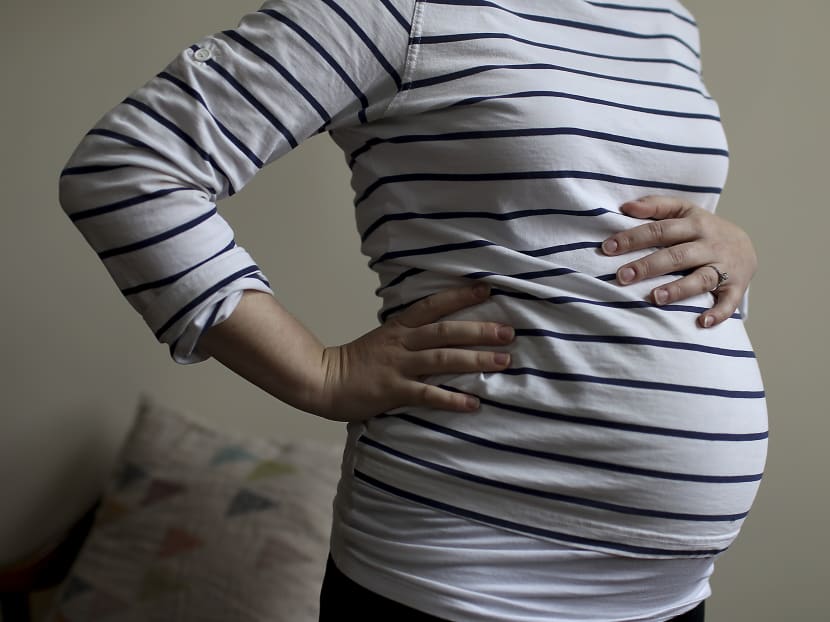Pregnant workers still ‘face subtle discrimination’ in Singapore
SINGAPORE — Statistics from the Ministry of Manpower (MOM) showed that the number of pregnant women unfairly dismissed has seen a significant drop in recent years — from 90 dismissal appeals in 2012 to 57 last year. And in the first quarter of this year, there were just 10 appeals.
SINGAPORE — Statistics from the Ministry of Manpower (MOM) showed that the number of pregnant women unfairly dismissed has seen a significant drop in recent years — from 90 dismissal appeals in 2012 to 57 last year. And in the first quarter of this year, there were just 10 appeals.
The majority of the pregnancy-related dismissal appeals were resolved “amicably” with compensation paid to the employees, an MOM spokesperson said.
But human resources (HR) experts and mothers-to-be say numbers do not tell the full story, as there are subtle ways of discrimination at the workplace.
Ms Tan Sook Leng, 37, worked as a radiotherapy assistant. Last February, after getting a positive result on a home pregnancy test kit, she asked her employer if she could be given a temporary position that does not expose her to radiation. The day after, she was told to submit her resignation immediately.
“I was so stunned, I didn’t know what to do. I just wrote (the resignation letter), packed up and left,” Ms Tan said.
But when she tried to appeal to the MOM, a conciliator told her she does not have a case for unjust dismissal because her pregnancy was not certified by a doctor at the point when she was asked to resign.
Jane (not her real name) prides herself as a career woman, often working weekends to close property deals while being a mother of an eight-month-old baby and an 11-year-old.
In March, when the 34-year-old let her employer of six months know that she was pregnant with her third child, her probation was extended.
A month later, she was told that she could either resign or be terminated. Even though she closed three residential leasing deals in seven months, she was told her figures were “poor” and they wanted someone “more productive”. She refused, taking advice from her husband and friends that her employer’s termination would be grounds for unfair dismissal based on her pregnancy.
In April, she was terminated by her property firm. Now, she is considering making an appeal to the MOM.
On Ms Tan’s case, president of the Singapore Human Resource Institute Erman Tan said poor performance would not be a fair or acceptable reason if they are based on an expecting mother’s physical, mental and psychological changes. “Employers should give them support, empathy and understanding during this so-called low-performing period.”
However, Mr Josh Goh, marketing director of ManpowerGroup Singapore, said to be fair to employers, if there had been regular feedback that the woman was not performing even before she disclosed that she is pregnant, then employers have the right to extend her probation.
On MOM’s website, it is stated that the law here recognises “it is wrong to add to the burden and stress of pregnancy”, so dismissing an employee because of pregnancy is against the law.
If a decision is taken to dismiss a pregnant employee who has been on the job for at least three months, then it “must be based on relevant and objective performance criteria, and after a thorough inquiry”.
The MOM spokesperson said that employers found to have unfairly dismissed pregnant employees “without sufficient cause” would be ordered to compensate and/or reinstate them. Employers who do not comply with the order may be liable to a fine of up to S$10,000 and/or be jailed up to 12 months on conviction.
While it is clear that it is unlawful for employers to dismiss mothers on maternity leave, there is still a lot of grey area that the law does not cover.
For example, in the case of Ms Tan, whose job entailed exposure to mild radiation, Mr Goh said her employer could have offered her no-pay leave if there were no alternative roles available instead of resorting to termination.
Mothers and married women also told TODAY that discrimination against mothers-to-be can start as early as from the interview stage — they are asked personal questions such as whether they intend to get pregnant soon.
After losing her job, Ms Tan said most of her interviewers probed her on her childcare arrangements and also asked her to answer how work will come first when she steps into the workplace.
Experts stressed that it is not a fair employment practice for employers to decide not to hire a person based on their marital status and family responsibilities.
Mr David Ang, director of corporate services at human resource firm Human Capital Singapore, said it is unethical to touch on personal and sensitive matters related to a potential employee’s welfare. Instead, they should be “looking at her skills, attitude and experience”.
Moreover, Mr Goh said those answers have “no bearing on the person’s ability to do the work” and can be seen as being discriminatory against pregnant women or mothers.
Mr Ang said that it is important for employers to spell out job requirements clearly at the hiring stage, especially when the nature of the job might be unsuitable for expectant mothers.
If not, then “it is the responsibility of the employer to deploy the person to some other work, but not necessarily to terminate or to serve notice,” he said.









